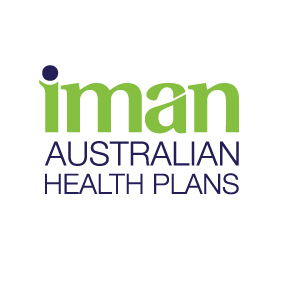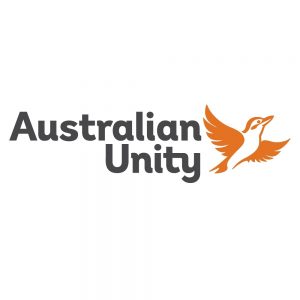Australia is the best place for abroad studies which offers a diverse range of study options with more than 22,000 courses to choose from 1,100 institutions.The Australian education system provides education distinguished from many other countries including primary, secondary and tertiary education by the Australian Qualifications Framework (AQF). International students can study different subjects at all levels including primary education, secondary education and tertiary education which refers to higher education (universities). from English language courses to higher education (including universities) and so on. There are organizations for higher education and VET institutions like Tertiary Education Quality and Standards Agency (TEQSA) and the Australian Skills Quality Authority (ASQA) respectively to look after the higher education and VET institutions. These organizations look for registration/re-registration of institutions and accreditation/re-accreditation of courses.Australia’s laws always promote quality education and also look for the protection of international students regardless of what you are studying for or how long you are studying. Different laws like the Education Services for Overseas Students (ESOS) Act 2000 and the National Code of Practice for Registration Authorities and Providers of Education and Training to Overseas Students 2007 (National Code) provides standards for providers of education and provide training for international students.
Guide to Study in Australia:
Research:
Studying abroad is one of the hard things to do in the sense that you are not familiar with that environment and so on. You have to do research on what to do, which course to choose for further study, which school/university to go for, city to live which comes under your budget and so on.Look after the subjects that you are interested in and want to carry out your further study. You can find universities review regarding your course, course descriptions and choose your interested subject.When you’re ready, make an appointment with a Grace counselor. We have professionally certified counselors who have been international students themselves.Take your wish course preferences and consult with a counselor they will help you with every small and big aspect.
Get your counseling today for Study in Australia:
When you choose a subject/course for your abroad study its time to apply. Our counselor will look after all things and go for the best legal process for your acceptance.You have to take different exams like IELTS, In a test such as IELTS, you need good grammar and spelling, a wide range of vocabulary. You have to practice these skills in order to score good grades on the test.once your application is reviewed and accepted then you will receive a letter of offer and an acceptance form. English plays a vital role in studying abroad. so you have to brush up your English to ensure you can keep up with what your lecturers are saying.
Apply for a student visa:
it’s time to apply for your student visa when you are accepted. We will help you to navigate this process with the authorized migration departments. We will help out along the way with advice on matters such as exchanging money, insurance, SIM cards and opening a bank account.
Speak to a Grace counselor
When you’re ready, make an appointment with a Grace counselor. Our counselors are professionally certified and many have been international students themselves. They’re a friendly face and a wealth of first-hand professional advice and personal experience from different study locations all over the world. Take your wish-list and course preferences along with you to your appointment as a starting point. Your counselor will work through all the big and small details to ensure the best possible fit between you, your future university and your area of study.
Make your application
After you’ve chosen your course and university, college or school, it’s time to apply. Your Grace counselor will support your applications. We take our job very seriously and follow the strictest legal and ethical standards. Your counselor will personally contact your chosen university, college or school to make sure they support your application to improve your chances of acceptance.If you need to take an English test to qualify for your course, don’t assume you’ll get the grade without practice. In a test such as IELTS, you will need good grammar and spelling, as well as a wide range of vocabulary. Even the best English speakers can have bad habits so remember to practice these skills.
Accept your offer
Once the university or school receives your application it will be assessed and you will be notified of the result. It can take a few weeks (or longer for postgraduate courses) for your application to be processed. If your application is successful, you’ll receive a letter of offer and an acceptance form. Before accepting your offer, your counselor will read it carefully through with you and check any conditions that may apply.If you are accepted for more than one course or school, we’ll help you decide which option is best for you.It’s natural to be nervous as you wait for the outcome of your course applications. If you are feeling anxious, we want you to tell us. This is perfectly normal and we can help you feel more confident.
Practice your English skills
It’s always a good idea to brush up your English skills to ensure you can keep up with what your lecturers are saying, especially if English is not your first language. Try watching things like TV news and talk shows, reading books or listening to podcasts where the English is more formal.Have some fun learning the local slang in Australia. For example, Australians (or ‘Aussies’ as they call themselves) have lots of different words (and accents) even though they all speak English.
Apply for a student visa
Now that you have been accepted, it’s time to apply for your student visa. IDP can provide you with some information to help make sure you are well-positioned to navigate this process with the authorized migration departments.
You’re on your way
Congratulations! You’re off on a huge adventure. There are lots of things to think about during this time and your IDP counselor will help out along the way with advice on matters such as exchanging money, insurance, SIM cards and opening a bank account.
Education Costs:
Depending on the institution and the level of study you choose the cost of education varies from student to student. Here is the range of course costs for several types of qualifications.
School
– $7,800 to $30,000
English language studies –
Around $300 per week depending on course length
Vocational Education and Training (Certificates I to IV, Diploma and Advanced Diploma)
– $4,000 to $22,000
Undergraduate Bachelor Degree
– $15,000 to $33,000*
Postgraduate Masters Degree
– $20,000 to $37,000*
Doctoral Degree
– $14,000 to $37,000*Talking about a scholarship, Australia provides a scholarship for many students from different fields looking at their qualifications and university rules. Applications have to be directly sent to the institution or organization offering the scholarship.
Get Started with Grace International








